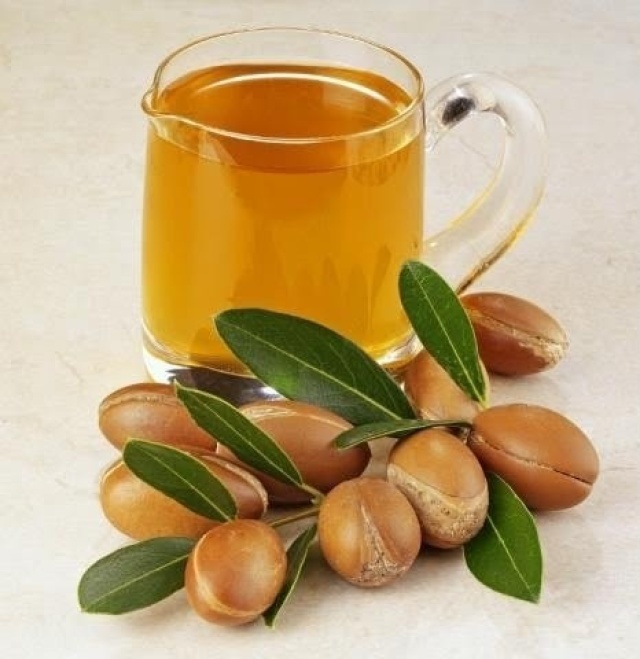Argan oil is a plant oil produced from the kernels of the argan tree that is endemic to Morocco. In Morocco, argan oil is used to dip bread in at breakfast or to drizzle on couscous or pasta. It is also used for cosmetic purposes.
Amlu, a thick brown paste with a consistency similar to peanut butter, is used locally as a bread dip. It is produced by grinding roasted almond and argan oil using stones, and then mixing the argan oil and almonds in honey.
Various claims about the beneficial effects on health due to the consumption of argan oil have been made. A research article published in 2010 found that argan oil contained higher levels than other oils which possesses strong chemopreventive and anti-inflammatory properties.
The fruit of the argan tree is small, and round, oval, or conical. A thick peel covers the fleshy pulp. The pulp surrounds a hard-shelled nut that represents about 25% of the weight of the fresh fruit.
The nut contains one to three oil-rich argan kernels. Extraction yields from 30% to 50% of the oil in the kernels, depending on the extraction method. It takes about 40 kilograms of dried argan fruit to produce only one liter of oil.
Cosmetic argan oil is produced almost identically, though the argan kernels are not roasted to avoid an excessively nutty scent. The decanted argan oil is left to rest about two weeks so the suspended solids settle to the bottom. The clearer argan oil is further filtered, depending on the required clarity and purity. Pure argan oil may contain some sediment.

